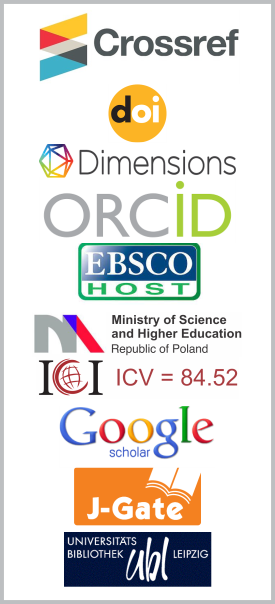User Satisfaction Role in Mediating Enterprise Resource Planning (ERP) System Effectiveness
DOI:
https://doi.org/10.26713/jims.v9i4.992Keywords:
Enterprise Resource Planning (ERP), Service Quality, User Satisfaction, Telecommunication, IS EffectivenessAbstract
Over the past, a decade, companies in Malaysia show deep interest in implementing the Enterprise Resource Planning (ERP) system to improve their business processes. Due to the capability offered by this so-called robust system, it yields interest in companies to implement this system but is lacking in knowledge on the impact after the execution of the system. Notionally, the effectiveness of the system can be measured only after successfully implementing the system. The user acceptance and satisfaction of using the system thus need to be investigated to measure its effectiveness. This research is conducted via a cross-sectional survey of 150 respondents. The responses were analyzed with employing structural equation modeling (SEM). The role of user satisfaction as a mediator is addressed in identifying the most important and significant factors contributing to the effectiveness of ERP system. Findings of this study revealed that the highest contribution was due to service quality where user satisfaction factor is embedded as a mediator in the SEM model of studying the relationship of service quality towards net benefits.Downloads
Download data is not yet available.
Downloads
Published
2017-12-30
CITATION
How to Cite
Ismail, N., Yatin, S. F. M., Kadir, R. A., Taib, K. M., & Yasin, S. M. (2017). User Satisfaction Role in Mediating Enterprise Resource Planning (ERP) System Effectiveness. Journal of Informatics and Mathematical Sciences, 9(4), 1183–1189. https://doi.org/10.26713/jims.v9i4.992
Issue
Section
Research Article
License
Authors who publish with this journal agree to the following terms:- Authors retain copyright and grant the journal right of first publication with the work simultaneously licensed under a CCAL that allows others to share the work with an acknowledgement of the work's authorship and initial publication in this journal.
- Authors are able to enter into separate, additional contractual arrangements for the non-exclusive distribution of the journal's published version of the work (e.g., post it to an institutional repository or publish it in a book), with an acknowledgement of its initial publication in this journal.
- Authors are permitted and encouraged to post their work online (e.g., in institutional repositories or on their website) prior to and during the submission process, as it can lead to productive exchanges, as well as earlier and greater citation of published work.




